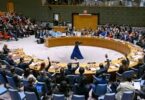The higher education in Pakistan had a download slope, since 1980s due to the conception of acute nepotism administered by the Cartels, known as “The Syndicate”. In 2010, it hit a new low after the implementation of 18th amendment by transferring the power to the provinces as political gimmicks, what ANP leadership interpreted as “Khpla Khora Khpl Ikhtiyaar”. Since, then flood gates of political appointments of party zeolites were made in faculty, management and ministerial staff. This overstaffing at unprecedented rate took a humongous toll on the budget and finances of the public sector universities. Moreover, downhill trajectory of the faculty caliber in specific and deteriorating quality of higher education in general is the direct result of vested interest of political parties and their pocket student federations, which are functioning illegally, roaming around in the corridors of the universities.
It is a common knowledge now that all the public sector universities are in disarray in terms of finance as they are unable to provide salaries to the faculty and other staff because their expenditure is greater than their income, Recently, Abdul Wali Khan University Mardan, pleaded to their enrolled students to deposit the semester fee, which is already on very high side. During this lockdown situation of COVID-19, business and trading activities are null and void, therefore, parents of the students are extremely financially constrained and are not able to pay the tuition fee.
Before the devolution of higher education to provinces under 18th amendment, the Federal government used to provide sufficient funds to public sector universities and institutes, which were often more than enough of the annual expenditure. But, due to their lavish spending on non-research and non-academic activities like a spoiled child, the federal government has deemed it necessary now to stop their funds as they are no longer constitutional bound to provide it. Moreover, the KP government had passed and enforced a legislation i.e. Khyber Pukhtunkhwa Universities Act, 2012, so it is the solemn responsibility of the provincial government to make allocations of funds in the annual budget for higher education, instead of lapsing more than 60 percent development and non-development funds every year.






